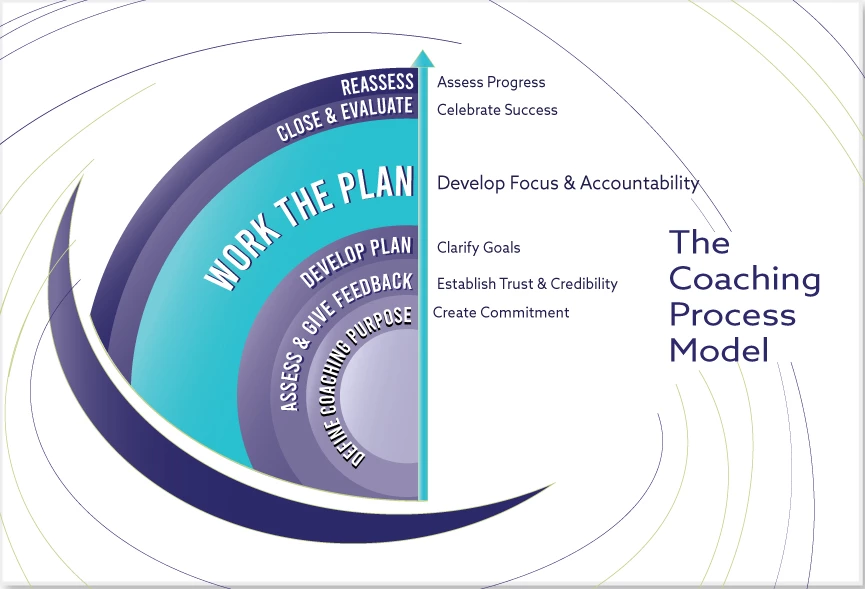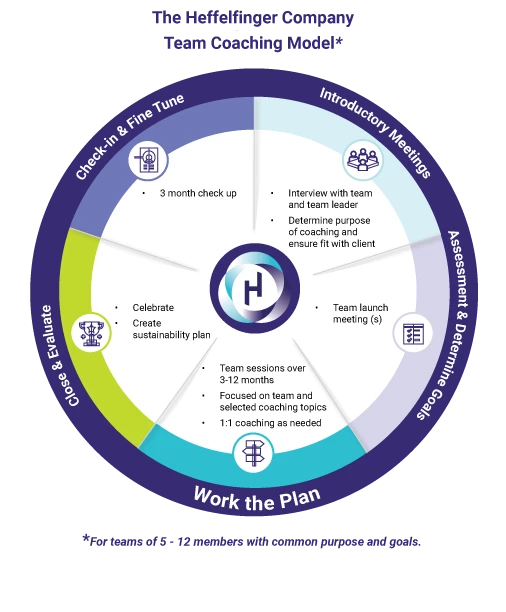
Executive & Team Coaching
Bottom line: Effective coaching improves business results.
Executive Coaching - Individual, tailored leadership coaching from THC stimulates, strengthens, and supports your executives and teams to achieve more with greater focus, higher EQ, and less stress.
Team coaching offers significant benefits by transforming silo-thinking and silo behavior into greater engagement, collaboration, communication, commitment, and consensus.
"This was the best coaching I received in my entire 30-year career." VP, large Aerospace Company

Fortune 100
We’re the preferred coaching company provider for Fortune 100 Technology companies and think tanks—some for 8 years and counting.

We coach execs + exec teams, enterprise, & functional managers to:
- Lead strategically, work on highest priorities, and delegate well
- Foster more engaged, higher-performing teams—across hybrid, WFH, and dispersed teams
- Generate measurable changes in EQ—especially in self-awareness, interpersonal relationships, political savvy, and confidence
- Lead and influence change — with less stress
- Leverage strengths to generate greater individual and team well-being and happiness
- Lessen workplace tension

Executive Coaching
We'll take your execs through our proven Executive Coaching Model:

Leadership becomes extraordinary when effective scores go beyond the 80th percentile (in a 360-degree assessment) and produce 2x the results of those in the middle 60th percentile
Executive Coaching Case Study


Team Coaching
Team coaching is helpful because it leverages the collective expertise and creativity of the group, leading to more innovative solutions and effective problem-solving. Teaming fosters a culture of continuous learning, adaptability, and mutual support, which enhances productivity and drives better outcomes for the organization.
What Is a Team?
A team is a group of individuals who collaborate to achieve common, challenging, and meaningful goals. According to Douglas K. Smith and Jon Katzenbach, The Wisdom of Teams: Creating the High-Performance Organization, a team is “a small number of people with complementary skills, who are committed to a common purpose, performance goals, and approach for which they hold themselves mutually accountable.”
Ideally consisting of 5-8 members, a team can effectively make strategic decisions together. When the group exceeds eight members, it often shifts to sharing information updates and deferring final decisions to the team leader. For a team to operate successfully, its members must be mutually accountable, recognizing that effectively working together requires continuous effort and dedication, much like maintaining a healthy marriage.
A senior team (a team of executives leading a company or heading up a business together) is unique in its collective experience and strategic vision. Its members are responsible for making high-level decisions that align with the organization's long-term goals and overall mission.
Team Coaching Vs. Group Coaching
Team coaching focuses on improving the dynamics, performance, and cohesion of a specific team working towards common goals, emphasizing enhanced interactions, trust-building, and alignment with organizational objectives. In contrast, group coaching involves individuals who may not work together regularly but come together to develop through shared experiences, focusing on personal growth, leadership, and skill development within a group context. While team coaching aims to optimize collective team effectiveness, group coaching leverages the diversity of participants to foster individual insights and learning, supporting each person's development within a collaborative environment.
When to Use a Team Coach
There are several proactive reasons to use a team coach. When teams/leaders are experiencing:
- Challenging and vital scope of work that requires a cohesive team
- Organizations that could be far more effective with greater connectivity with peer organization where there are disconnects and/or overlapping responsibilities or handoffs
- Tasked with making change across the organization
- Need to better understand how to work more effectively with their stakeholders
- Lack of productivity, engagement of team members
- Lack of mutual accountability
- Reduced trust or conflict amongst team members
We will take your teams through our proven Team Coaching Model:

Group and Team Coaching Offerings
Service Details
Executive Coaching
6 - 12
Months
Leadership Coaching
4
Months
Group Coaching
3 & 6
Months
Team Coaching for Teams
3 - 12
Members
New Leader Assimulation
in the 1st
90 Days
Assessments
As part of a process
Individual & Group
Service Testimonial
"I can safely say that I would not have been promoted into a new position without the skills and approach that I learned with James. This has been the single most impactful engagement that I've had in my career!"
Cultivating leaders & aligning teams to drive lasting, scalable results.
Download our free guide






